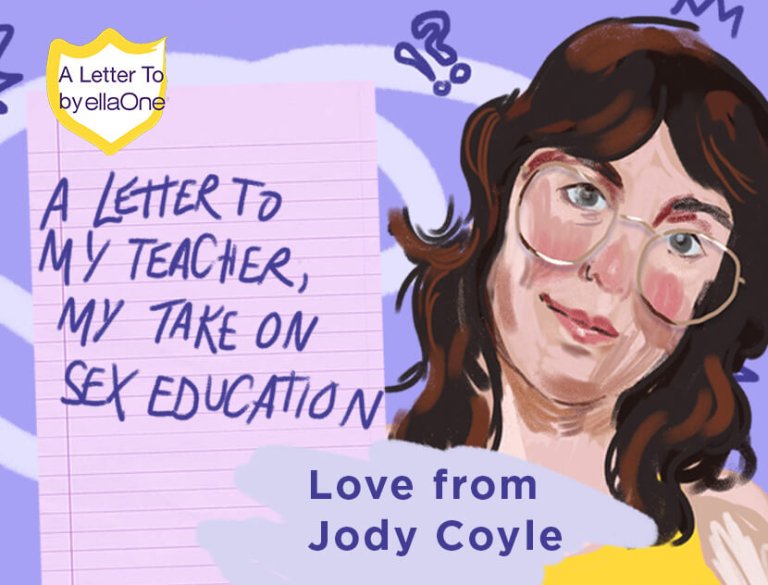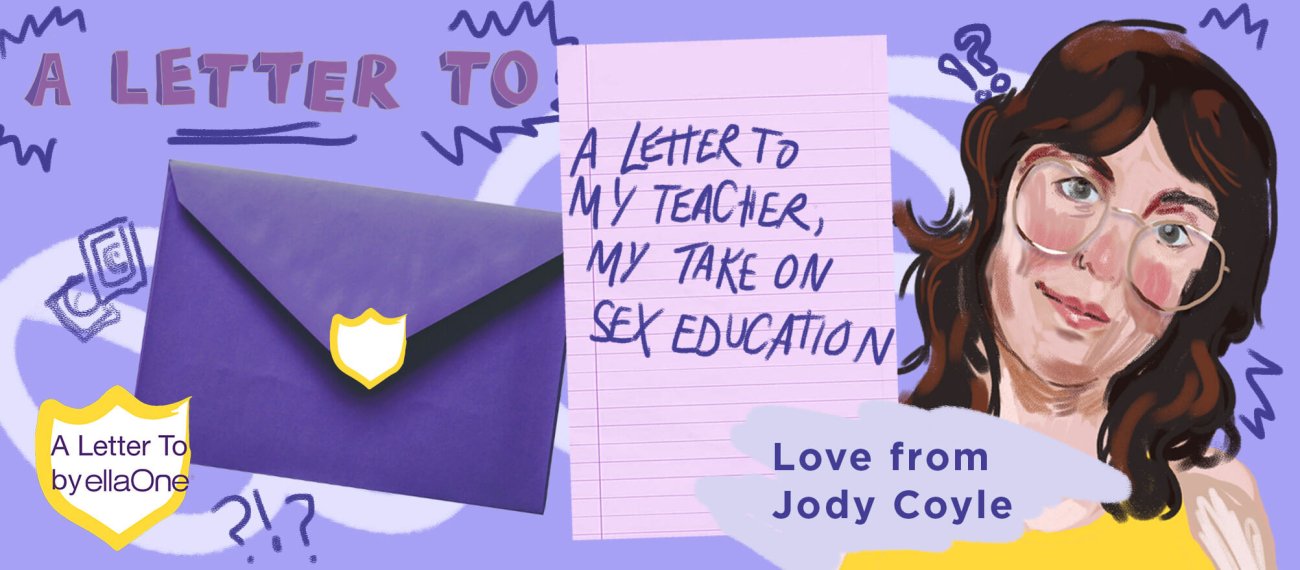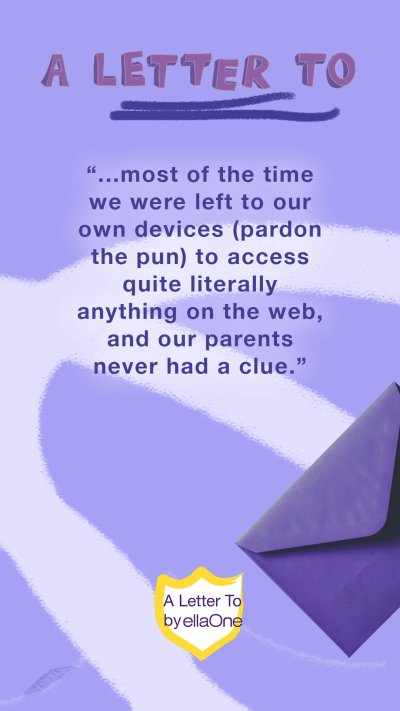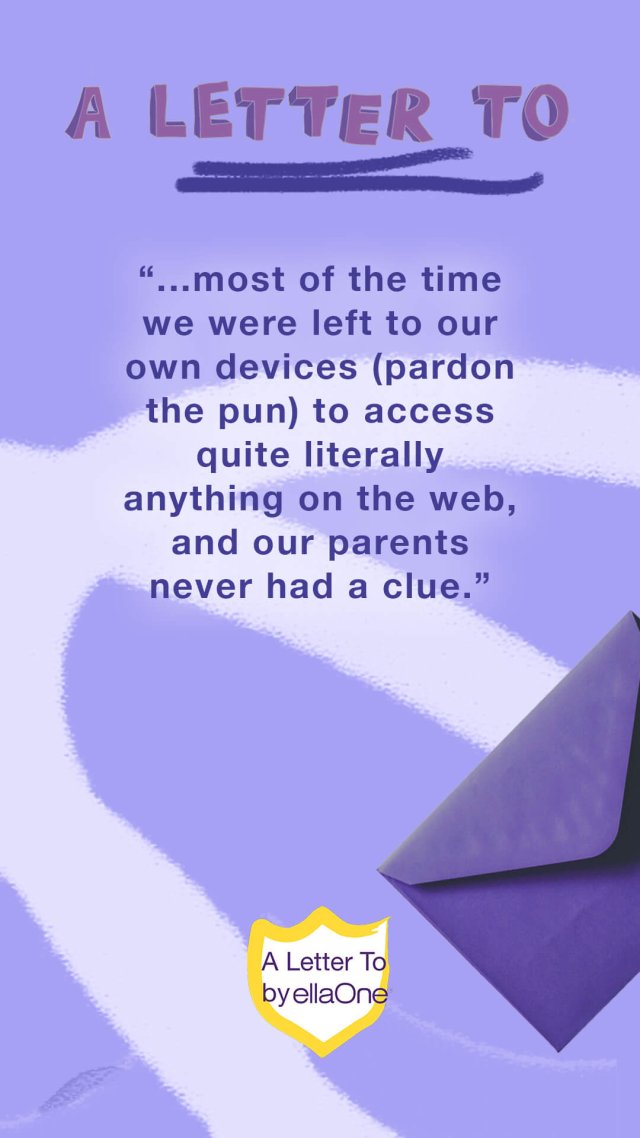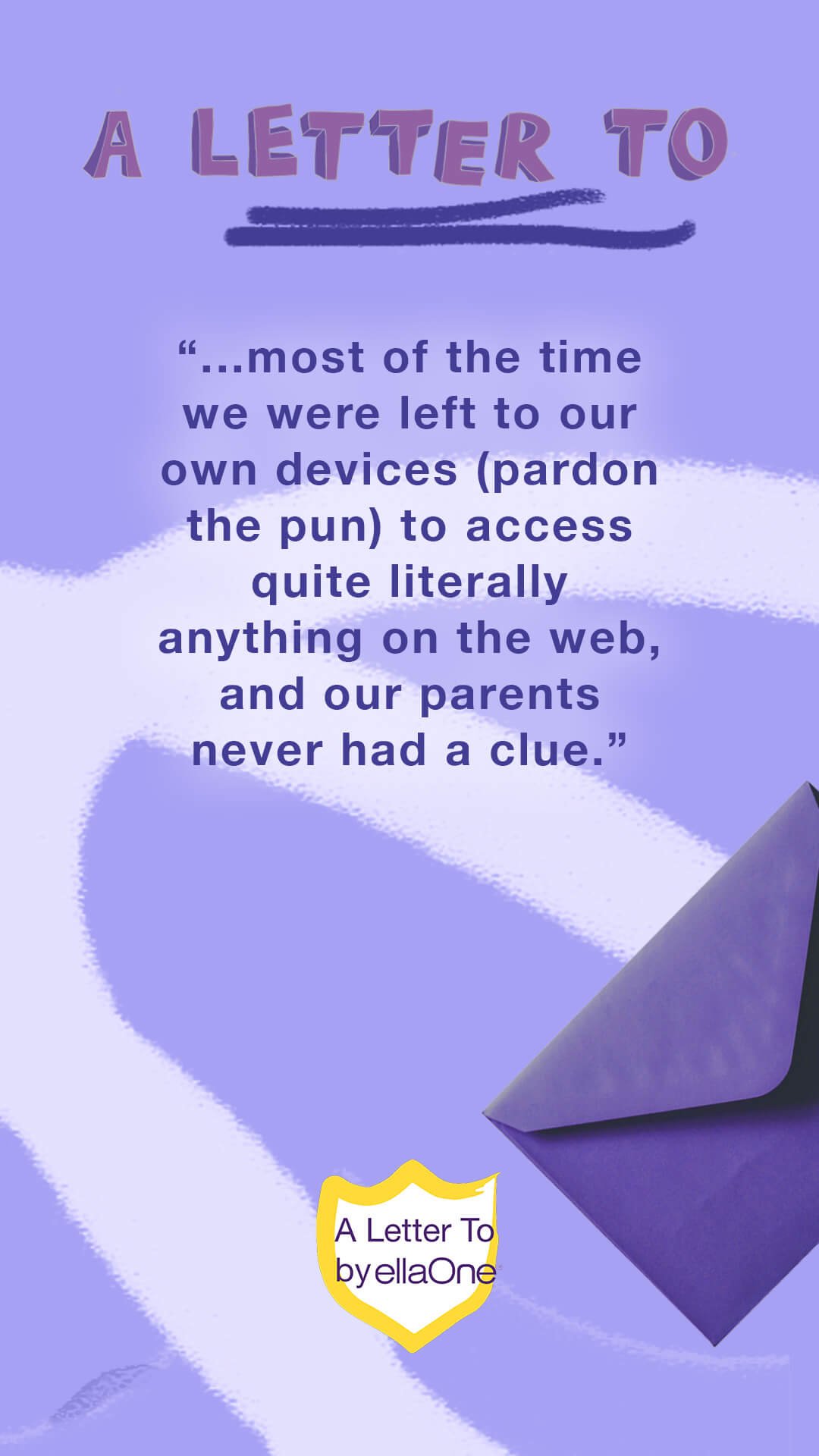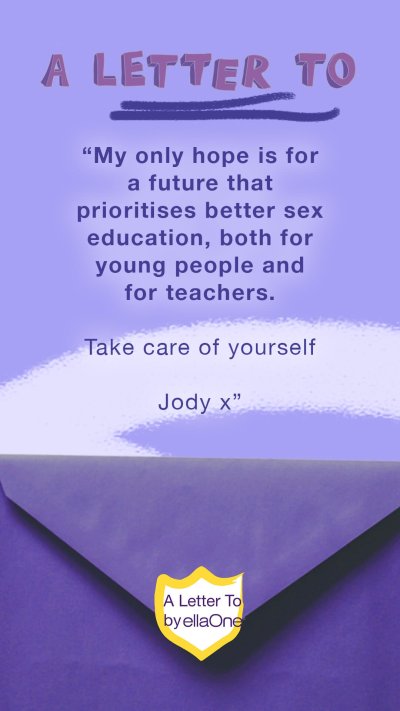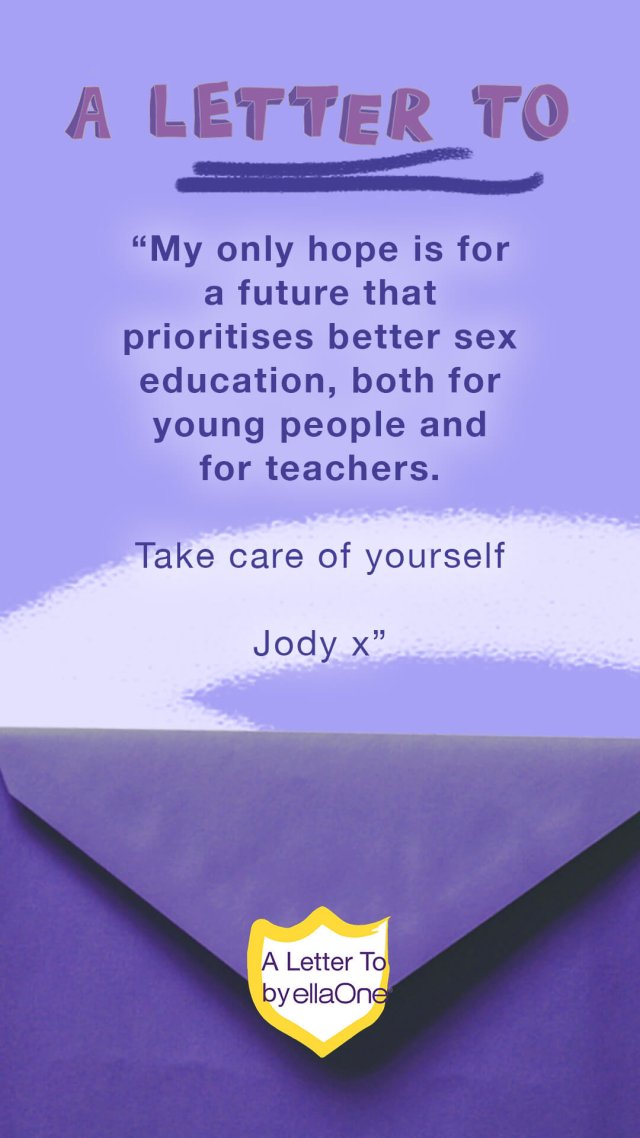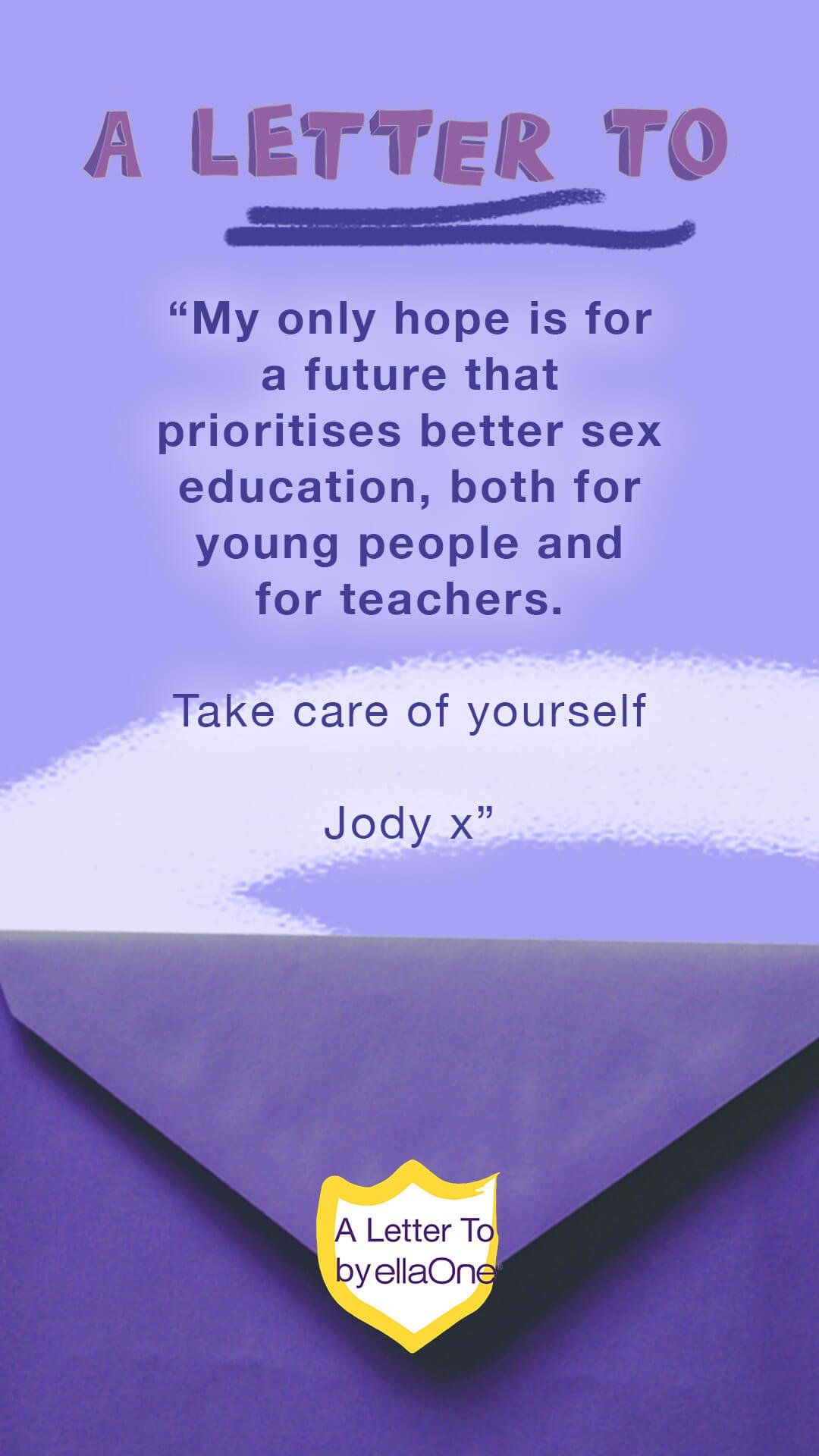A Letter To My Teacher: My Take On Sex Education
Dear Teacher,
As I sit here and think back to PSHE class with you, my mind takes me back to the memory I have of you bringing us into the classroom very seriously. You were quick to settle us down—no nonsense, no chat. We were a bit of a wild bunch, to say the least; it was not always easy to rein us in, but you had our attention that morning.
We sat down at our desks, wondering what on earth was going on, and you took your usual spot behind your computer. With a few words about what we were doing today, you swiftly loaded up the PowerPoint. It didn’t take us long to realise what we would be learning about that session. Some of us looked forward to it (like myself), others dreaded the thought of it… We were learning about sex!
The presentation was a refresher on puberty and an introduction to intimate relationships. I’m not sure if you were embarrassed or if you felt like you’d drawn the short straw being lumbered with teaching sex to us unruly lot, but you remained behind the computer for the entire session, clicking and reading through the slides as quickly as you could. What stood out to me most was how the information seemed so simple when it was put to us in bite-sized pieces, but at the same time lacked clarity and context around key messages. For example, the advice “Don’t have sex until you’re ready”. What does that really mean? Sex education without proper explanation can be confusing, while oversimplifying the topic can be misleading.
Once the slideshow was over, you proceeded to load up the ‘educational’ video. (Why does every person you talk to have a memory of watching a video from their sex education that was weird, outdated, or awkward?!) It was that odd docufilm that followed two teenage characters (a cis-heterosexual boy and a girl) as they grew through the stages of puberty and their journey of sexual attraction to one another. It had to have been at least 10 years old, and the storyline was beyond dramatic, not to mention lacking in representation. It made it incredibly challenging to stay focused as kids who found banter in absolutely everything!
Just as you managed to settle us down, it was time to wrap the lesson up because the school bell had just rung. It was all over so fast. There was little time to have a discussion about the lesson or to ask any questions.
It was worth noting that at this point we were around 14 years old, so our bodies and brains had already started going through the changes of puberty. Our hormones were ramping up fast, and sex was already on our minds. Many of us were getting into relationships ourselves for the very first time and experiencing our first feelings of lust. As teenagers who were thinking about their first sexual debut, we had lots of questions but not many answers. So what did we millennials do? We did what we did best. We went looking for answers online to fill the gaps in our education. Forums, webpages, chat rooms, and porn sites.
We became the first generation of young people to learn about sex through the internet. This came at quite a cost to our sexual development, as we were exposed to a lot very early on, witnessing some very violent, abusive, and degrading content. However, back then, with less awareness about internet safety, age regulation, and parental control, most of the time we were left to our own devices (pardon the pun) to access quite literally anything on the web, and our parents never had a clue.
It’s really no wonder that we became a generation that grew up with unhealthy and distorted attitudes around our bodies, relationships, and sex.
A couple years later, we were back doing sex education in the classroom. This time we had a visit from a nurse. There was something refreshing about having an outside person come in, and I sensed you were more relaxed too. Also, there was no weird video! Hurray! That being said, the nurse seemed to focus heavily on the risk of sex and ‘practicalities’. The takeaway messages were “Sex could ruin your life” and “Avoid sex if you don’t want to get pregnant or catch an STI”.
For myself and the others in my class, this was hugely disappointing. Even more so, as by this time it was a case of “Too little, Too late,” with at least half of us already sexually active. After this session, I remember thinking, “So at what point in your life does sex get normalised?” We all knew adults were ‘doing it’, including our parents and teachers! So why were they pretending to us like they weren’t? And how were we supposed to learn about sex if we only talked about how risky and dangerous it is?
On reflection, I think the lack of sex positivity pushed me further into wanting to explore and experiment to find out for myself what sex was all about. Sometimes this involved being unaware of the situations I was putting myself in and the risks of doing so. I think that not having the opportunity to talk about the pleasure and enjoyment of sex led to missed opportunities to have conversations around important topics like consent, boundaries, and communication.
Again, the implications of this fed into more unhealthy ideas around sex and what is and isn’t OK. We sadly had no idea about things like safety in relationships, sexual violence, or sexual harassment.
I consider sex positivity to be the cornerstone of my work as an accredited sex educator. It’s super important to me to foster open conversations and break down taboos surrounding pleasure. I truly believe that this is essential for people to explore and nurture their own sexual selves, understand their bodies and boundaries, and gain knowledge and understanding about sex and healthy relationships.
As I arrive at the final section of my letter, I want to finish off by acknowledging the role that you played as my sex education teacher. Teaching sex ed is a massive responsibility, although it’s not often a responsibility that comes by choice for teachers in schools. It can be easy to blame teachers for what they have or haven’t taught you. I certainly know my younger self did.
However, my own journey into becoming a sex educator has allowed me to appreciate that teachers often face limitations in delivering sex education due to the insufficient training, resources, and time provided to them. Schools restrict you to what you can and can’t teach, and they push you to come up with lesson plans that fit within that criteria with very little support. It’s not straightforward!
So while yes, I wish I had learned more about sex in school, just know that I don’t blame you! My only hope is for a future that prioritises better sex education, both for young people and for teachers.
Take care of yourself.
Jody x
Jody does not endorse any products or brands
